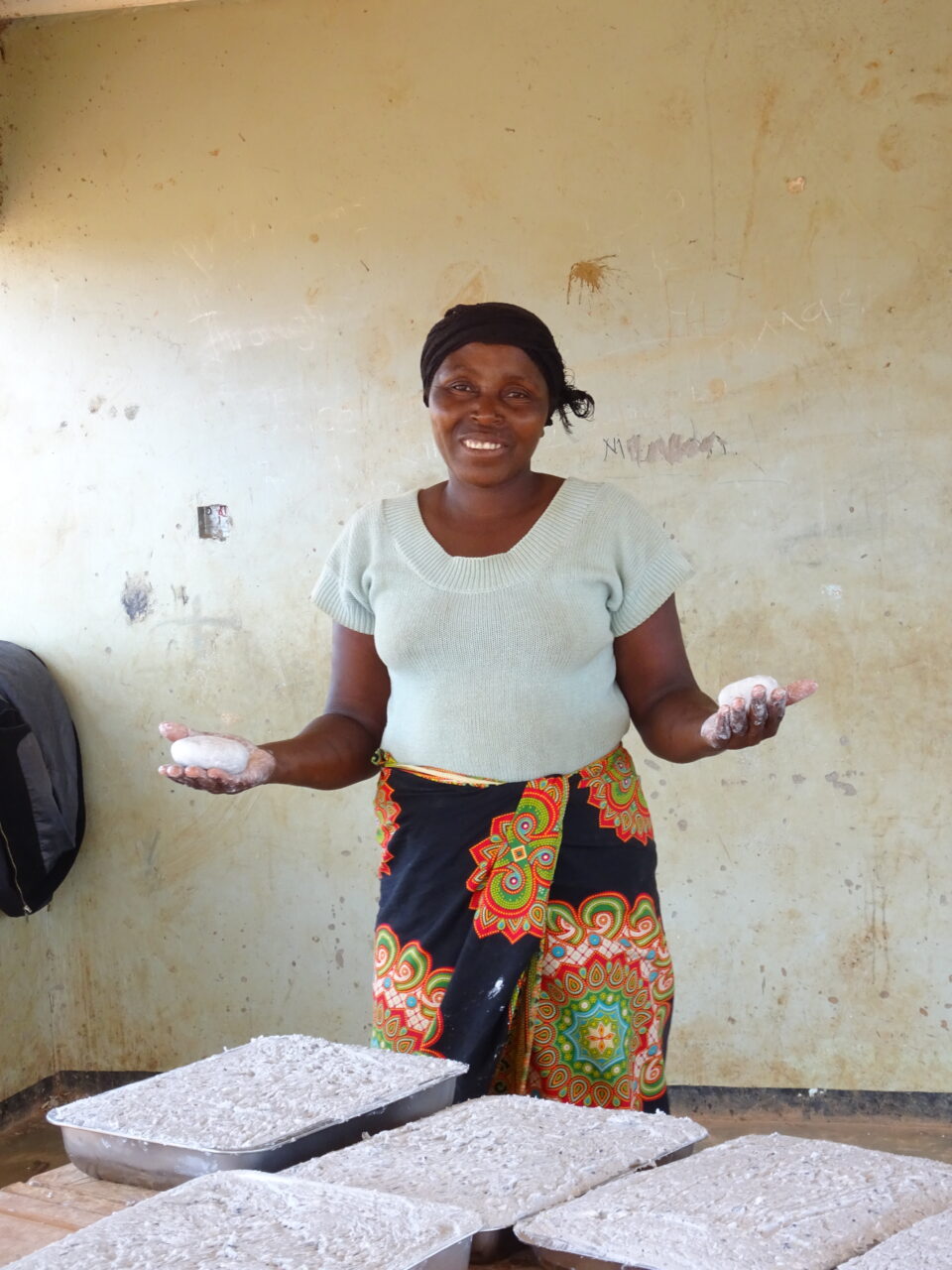The Original Bradford Soap Works knows the personal care industry better than most: They’ve been innovating for 144 years and, today, their customers include many of the biggest brands in personal care. As a company committed to sustainability—they were the first U.S. soap manufacturer to receive organic certification—a partnership with World Vision makes perfect sense. Bradford was drawn to World Vision’s global reach and its focus on people and the planet, two of the company’s core priorities.
The collaboration began in the wake of Hurricanes Harvey and Maria, when Bradford provided bar soap for World Vision’s emergency response efforts. Now, the partnership has grown into another instance of the company’s innovation. Because Bradford’s products are manufactured for other brands, they can’t donate finished bars, but they can donate the remaining shavings and chips—material that otherwise would be thrown out. “We at Bradford are focused on ‘zero waste’ and a circular economy, so by taking unused soap at the end of each production run and donating it, we are helping people globally while moving toward our goal of becoming a zero-waste facility. It is a win-win!” explains Stu Benton, president and CEO of Bradford.
World Vision ships these soap chips to communities where soap isn’t readily accessible. “World Vision’s outstanding logistics team allows for the seamless coordination of shipments and manages importation documents on our behalf,” Benton adds. In the first project, 15 women from a World Vision savings group in Zambia learned how to melt down the chips and turn them into bars, then sold their products to earn a stable income.
In a refugee camp in Somalia, Bradford and World Vision aimed to improve people’s health with better access to soap, empower women in vulnerable circumstances, and create job opportunities. The results have been impressive: In 2019, Bradford provided more than 165,000 pounds of soap base to World Vision, and over 75 women were employed making soap for their communities. With better hygiene resources, kids and families are healthier—noticeably shorter lines at the health clinic reflect it. In 2020, the donated soap came to over 755,000 pounds, making possible more jobs and opportunities for better health.
Bradford looks forward to expanding into more projects with World Vision. “I love that we can help the world while energizing our employees at the same time because they know they are making a difference,” says Benton.


Comments